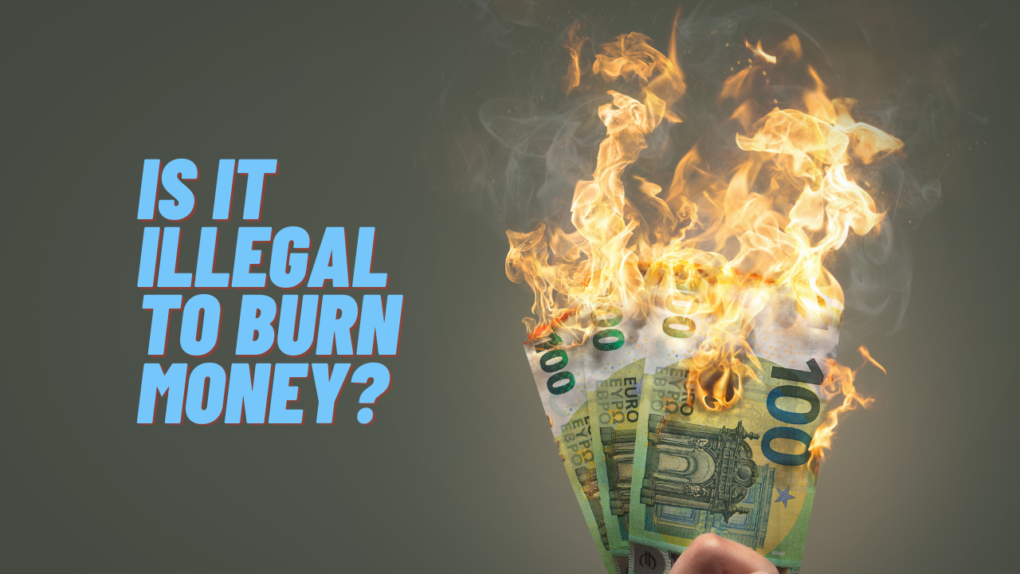In our modern society, money plays a crucial role in facilitating transactions and representing value. However, there are instances where people have contemplated the act of burning money. This article explores the legality, historical significance, cultural perspectives, and various implications associated with burning money. Let’s delve into this intriguing topic and uncover whether Is It Illegal to burn money or not?
Is Burning Money Illegal?
Burning money raises an important question regarding its legality. In many countries, intentionally destroying legal tender, such as burning banknotes, is indeed illegal. The primary reason behind these regulations is to maintain the stability and integrity of the monetary system. By preserving the value and circulation of currency, governments aim to ensure economic stability.
Laws Regarding the Destruction of Currency
Laws surrounding the destruction of currency vary across different jurisdictions. In the United States, for instance, the defacement, mutilation, or destruction of currency is prohibited by Title 18, Section 333 of the United States Code. Similar laws can be found in other countries as well, aiming to safeguard the monetary system.
Historical Significance of Currency Destruction
Throughout history, the destruction of currency has held both symbolic and practical significance. In times of war or economic turmoil, burning money may occur as an act of defiance or to prevent the enemy from gaining wealth. The intentional destruction of currency has been observed during hyperinflationary periods when the value of money rapidly declines.
Cultural Perspectives on Burning Money
Cultural perspectives regarding burning money differ worldwide. In some cultures, burning money is seen as a ritualistic practice to honor deceased ancestors or as an offering to the gods. These ceremonial acts symbolize wealth and prosperity in the afterlife. However, it’s important to respect and understand the cultural context before interpreting such practices.
Symbolism and Artistic Expression
Burning money can also be viewed as a form of artistic expression and symbolism. Artists may use the act of burning money to make a statement about consumerism, capitalism, or the fleeting nature of wealth. Through their artwork, they challenge societal norms and provoke discussions about the value we assign to money.
Burning Money as a Form of Protest
In certain instances, burning money has been utilized as a powerful form of protest. It can symbolize dissatisfaction with economic inequality, corrupt systems, or perceived misuse of public funds. By publicly destroying money, individuals aim to draw attention to their cause and ignite conversations about financial disparities.
Psychological and Societal Implications
The act of burning money carries psychological and societal implications. On an individual level, it can represent rebellion, freedom, or even self-destructive tendencies. Societally, burning money can challenge notions of value, provoke discussions about wealth distribution, and question the importance placed on material possessions.
Arguments Against Burning Money
Opponents argue that burning money is a wasteful and disrespectful act. They claim that it undermines the efforts of those who work hard to earn a living. Moreover, critics believe that burning money does little to address the root causes of economic inequality and suggests more constructive ways to advocate for change.
The Debate Around Burning Money
The topic of burning money sparks a heated debate, with contrasting opinions and perspectives. Supporters argue that it is a valid form of expression and protest, highlighting systemic issues. Conversely, opponents view it as an impractical and ineffective method of enacting change. The ongoing discussion contributes to our understanding of the complex relationship between money, society, and values.
Alternatives to Burning Money
For individuals seeking alternative ways to express their dissatisfaction or advocate for change, numerous options exist. Donating to charitable causes, volunteering, supporting social justice movements, or investing in sustainable initiatives are proactive ways to address societal issues without resorting to the destruction of currency.
Conclusion
The act of burning money is a multi-faceted topic that encompasses legality, symbolism, cultural practices, and socio-economic implications. Is it illegal to burn money? While it may be illegal in many jurisdictions, burning money can serve as a powerful form of expression, protest, and artistic statement. It challenges societal norms, initiates conversations, and prompts individuals to reflect on the value of money and its impact on our lives.
Read also : Luna Crypto: A Game-Changing Investment Opportunity You Can’t Miss
Learn more about the legality of burning money in the article “Is It Illegal to Burn Money?” by ThoughtCo.




